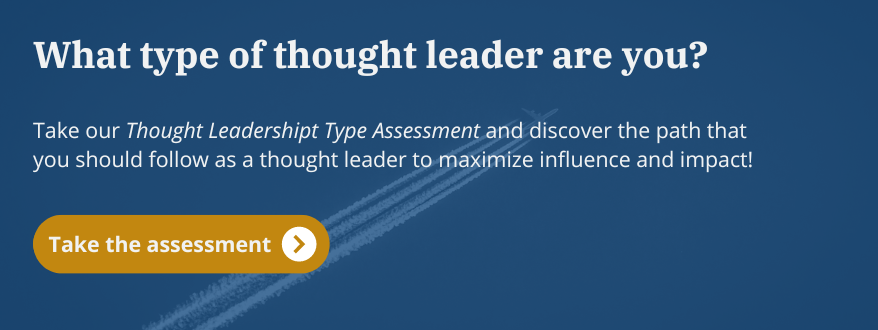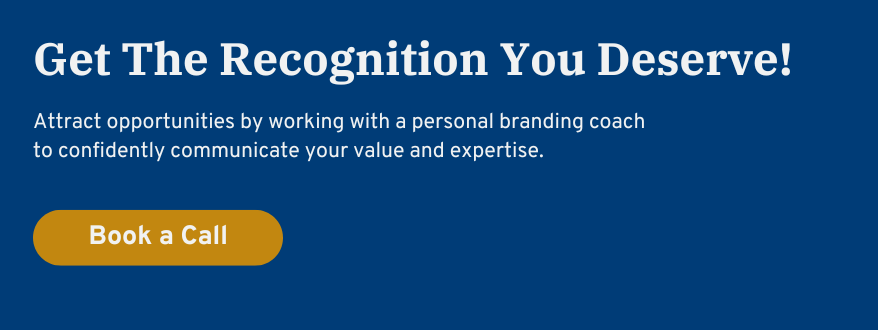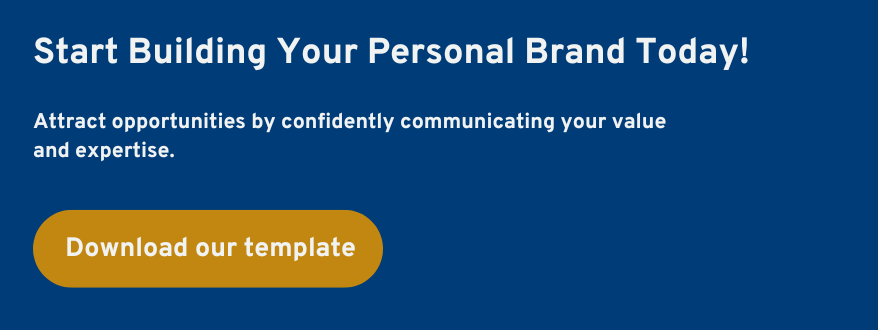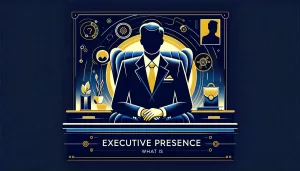In this piece, there are two different sets of personal brand questions.
If you are here because you are curious to learn more about personal branding and want to find the answer to questions such as:
- What is a personal brand?
- Why do you need a personal brand?
- And other related questions about personal branding
Then, head over to this section of the article.
If you are here because you are ready to start the journey of maximizing your potential and becoming a recognized and memorable expert in your niche, then keep reading.
The next section covers a collection of 21 personal brand questions meticulously curated to guide you on a transformative journey of self-discovery.
These are some of the questions that I use in my 1:1 consulting sessions with clients.
Read the questions, write down the answers that come up for you (without censoring yourself), and let yourself go through this journey of internal exploration.
Because, as Socrates famously said:
The unexamined life is not worth living.
Enjoy.
Contents
- 1 Top 21 Discovery Personal Brand Questions
- 1.1 1) What are my core values, and how do they shape my decisions and actions?
- 1.2 2) What are my unique strengths, and how can I leverage them to differentiate myself?
- 1.3 3) What passions and interests do I want to incorporate into my brand?
- 1.4 4) What are my key accomplishments and successes in my professional journey?
- 1.5 5) What makes me stand out from others in my field?
- 1.6 6) How do I want to be perceived by my target audience?
- 1.7 7) What are the top skills I possess that are relevant to my industry?
- 1.8 8) What professional experiences have had the most significant impact on my growth and development?
- 1.9 9) What motivates and inspires me in my work?
- 1.10 10) How do I handle challenges and setbacks, and what lessons have I learned from them?
- 1.11 11) What are my short-term and long-term career goals?
- 1.12 12) What unique perspectives and insights can I offer to my industry?
- 1.13 13) How do I want my personal brand to align with my personal values?
- 1.14 14) How can I demonstrate authenticity in my professional interactions?
- 1.15 15) What are the key qualities or characteristics that define my personal brand?
- 1.16 16) What professional accomplishments am I most proud of, and how can I showcase them?
- 1.17 17) What is my preferred communication style, and how can I leverage it in my personal brand?
- 1.18 18) What are the areas for improvement and growth that I should focus on?
- 1.19 19) How do I want to impact my industry or community positively?
- 1.20 20) What are the top three words or phrases others would use to describe me professionally?
- 1.21 21) What are my target audience’s pain points, and how can my personal brand address them?
- 2
- 3 What Is a Personal Brand?
- 4 Why Do You Need a Personal Brand?
- 5 How Do You Build a Personal Brand?
- 6 What Is the Difference Between Personal Brand and Personal Branding?
- 7 How Does a Personal Brand Look Like?
- 8 What Is Personal Branding in Business?
- 9 Who Needs a Personal Brand?
- 10 Is Personal Branding Just About LinkedIn?
- 11 Which Is the Best Social Media Platform to Develop Your Personal Brand?
- 12 What Does a Personal Branding Consultant Offer?
- 13 Have More Personal Brand Questions?
Top 21 Discovery Personal Brand Questions
Here are some questions that can help you understand what makes you unique.
These might also give you insights into communicating your value with clarity and confidence to attract professional opportunities.
1) What are my core values, and how do they shape my decisions and actions?
List down the values that are non-negotiable in your life and work. Reflect on past decisions where these values guided you.
This helps in understanding what drives your actions and decisions.
2) What are my unique strengths, and how can I leverage them to differentiate myself?
Identify your top three unique strengths.
Reflect on how they have contributed to your success and brainstorm ways to highlight these strengths in your personal branding materials.
3) What passions and interests do I want to incorporate into my brand?
List your top five passions and interests.
For each, think of a way to integrate it into your brand, whether through content, storytelling, or showcasing related projects.
4) What are my key accomplishments and successes in my professional journey?
Create a ‘brag sheet’ where you list your top accomplishments.
Select the most impactful ones and incorporate these stories into your professional bio, LinkedIn profile, or personal website.
5) What makes me stand out from others in my field?
Analyze your competitors or peers and note what they’re doing.
Identify what you do differently or better and emphasize these aspects in your branding efforts.
Determining what sets you apart is like figuring out the unique flavor in your signature dish.
It’s a blend of ingredients – your experiences, skills, and personality – that creates a taste (or brand) that’s distinctly yours.
6) How do I want to be perceived by my target audience?
Define your ideal audience and write a statement on how you want them to perceive you.
Use this as a guide to tailor your messaging and presentation style.
7) What are the top skills I possess that are relevant to my industry?
Identify five skills crucial in your industry.
For each skill, provide an example of how you’ve effectively used it in a professional context.
8) What professional experiences have had the most significant impact on my growth and development?
Reflect on your career and identify three experiences that significantly impacted your growth.
Narrate these experiences in a blog post or during networking events to highlight your development journey.
9) What motivates and inspires me in my work?
Write down what aspects of your work excite and inspire you.
Use these insights to create content that reflects your enthusiasm and to find projects that align with these motivators.
10) How do I handle challenges and setbacks, and what lessons have I learned from them?
Think of a major challenge or setback you’ve faced.
Write a case study or a blog post detailing the challenge, your response, and the lessons learned.
11) What are my short-term and long-term career goals?
Define your career goals for the next year and the next five years.
Develop a roadmap with milestones to track your progress towards these goals.
12) What unique perspectives and insights can I offer to my industry?
Identify three unique viewpoints or insights you have about your industry.
Share these in industry forums, social media, or blog posts to establish thought leadership.
13) How do I want my personal brand to align with my personal values?
List your core personal values.
For each, write a statement on how these values are reflected in your professional life and branding.
14) How can I demonstrate authenticity in my professional interactions?
Practice storytelling where you share genuine experiences and lessons learned.
This builds authenticity and connects more deeply with your audience.
15) What are the key qualities or characteristics that define my personal brand?
Identify three to five key qualities or characteristics that define your brand.
Use these as a guide for all your personal branding materials and communications.
16) What professional accomplishments am I most proud of, and how can I showcase them?
Select two or three accomplishments you’re most proud of.
Develop case studies or portfolio pieces that highlight these achievements.
17) What is my preferred communication style, and how can I leverage it in my personal brand?
Assess your communication style and adapt your personal branding strategies to reflect this style, ensuring consistency in all your communications.
You can use ChatGPT, or another tools such as Grammarly, to analyze the tone of material that you’ve written (you can also use transcripts from presentations or meetings).
18) What are the areas for improvement and growth that I should focus on?
Conduct a self-assessment to identify areas for improvement.
Set specific, achievable goals for growth and track your progress regularly.
19) How do I want to impact my industry or community positively?
Define how you want to impact your industry or community.
Create a plan on how to achieve this impact through your work, volunteering, or thought leadership.
20) What are the top three words or phrases others would use to describe me professionally?
Ask colleagues, friends, or mentors to describe you in three words.
Use this feedback to understand your current professional image and align your personal brand accordingly
21) What are my target audience’s pain points, and how can my personal brand address them?
Conduct research to understand your target audience’s challenges.
Develop solutions or content that directly addresses these pain points, showcasing your understanding and expertise.
These questions serve as a foundation for introspection and self-discovery, helping introverted professionals deepen their understanding of their personal brand and take intentional steps toward professional success.
Below are some of the most frequently asked questions about personal branding in general.
Bonus: If you’d like to get support in answering these personal branding questions, you can schedule personal branding consulting session with me.
What Is a Personal Brand?
A personal brand is a reputation that you have created with intention.
Everyone has a reputation. But not everyone has a personal brand.
Because not everyone will engage in conscious efforts to define how they want to be perceived.
That requires sharing your expertise and communicating your value in an engaging way for your ideal audience.
Why Do You Need a Personal Brand?
Working on your personal brand is important because it can amplify your professional impact.
Most people are trying to figure out how to be heard globally, and those with a personal brand are halfway there.
A personal brand showcases what you are capable of and presents it in such a way that anyone who can benefit from what you do understands it.
It also can be a promise of what someone can expect from you, and being able to make that promise strategically can be incredibly beneficial to your professional life.
How Do You Build a Personal Brand?
Most people don’t know that their reputation, instead of being something out of their control and set in the minds of other people involuntarily, is something they can actively influence and work on to maximize benefits in their professional and social endeavors.
The process of crafting a personal brand with purpose is typically divided into three phases (at least, that is how we do it at Latinpresarios): Discovery, Strategy, and Marketing.
In the first step, you, along with anyone that helps you in your journey, learn and decide how you want to be perceived as a professional, who you want your audience or niche to be, and define your personal branding statement.
In the second, you make sure to use the knowledge gathered in the discovery process to set goals and create a strategy that will help you achieve these.
The third phase is about making sure to start creating valuable content that helps you position yourself as an expert in your niche.
All of this is done with various resources and techniques, including blogging, social media management, video production, and more.
What Is the Difference Between Personal Brand and Personal Branding?
Personal branding is the process, while the personal brand is the result.
Personal branding is the art of working, developing, and crafting your brand. It involves all the steps that you have to take to position yourself as an expert in your niche.
How Does a Personal Brand Look Like?
As the aggregate of thoughts and emotions that arise when your name is mentioned, a personal brand can adopt different forms.
It widely depends on each person’s goals.
As summarized by Werner Geyser in his Influencer Marketing Hub article:
“Professionally, your personal brand is the image that people see of you. It can be a combination of how they look at you in real life, how the media portrays you, and the impression that people gain from the information about you available online.”
What Is Personal Branding in Business?
Since personal branding is the process of managing your reputation, in the business world, these efforts are put towards making sure you position yourself as a thought leader in your niche.
This way, you can:
- Attract more clients
- Improve your chances of being recognized for your work within or outside your workplace
- And become a reference in your area of expertise
Many personal branding consultants work specifically with people who want to craft their personal brand to boost their careers or grow their businesses.
It can be a business owner, an executive, or someone who wants to take control of their career.
Whether you are the CEO, manager, or employee, personal branding for any team member can be beneficial at work.
Who Needs a Personal Brand?
In short, everyone should work on their personal brand.
Even those who wish to remain out of the public eye can find ways to work on their personal brand in a way that doesn’t attract fame but attracts the right clients.
Students benefit from having personal brands to be more attractive once they start seeking jobs and upper studies opportunities.
CEOs, executives, and business people that work on their personal brands enable ways to attract more clients and improve their network.
Self-employed people can leverage their personal brand to increase their income.
Even those wishing to make a living from cultural work can benefit from it. Artists that have a well-established and purposeful personal brand are more likely to find success and stand out from the crowd.
If you want to know more about what factors you should consider to develop your personal brand, check out our article “Who Needs a Personal Brand?”
Is Personal Branding Just About LinkedIn?
No. Personal branding goes beyond having and crafting a great LinkedIn profile.
However, knowing some of the benefits you can enjoy by keeping your LinkedIn game sharp is still important. Some of the main things you might experience are:
- Increase the number of people that know you,
- Meaningful connections and conversations,
- Get to know potential clients,
- Invitation to speaking engagements,
- And promotion of other sources of revenue.
These factors come in handy, considering LinkedIn is one of the few platforms that make it so easy to connect people from similar backgrounds and offers the possibility to post written and audiovisual content.
Nonetheless, it is important to note that since LinkedIn is still a social media platform that attracts specific people with specific interests, and if your audience does not match these characteristics, then maybe LinkedIn might not be the best option for your brand.
Some of the things other social media platforms offer are:
- Different age ranges: LinkedIn is mostly used by professional adults, but YouTube, Instagram, and Facebook cater to a broader range of people of all ages.
- Different regions: LinkedIn is very well known in the United States, Canada, and many European countries, but if your audience does not come from these regions, you might want to check out other platforms.
Which Is the Best Social Media Platform to Develop Your Personal Brand?
Generally speaking, YouTube and LinkedIn are great spaces to develop your personal brand.
LinkedIn, on the one hand, is great for creating business-oriented relationships.
It also offers a space to share your ideas through blogging, which can be an important activity to establish yourself as a thought leader.
On the other hand, YouTube is one of the most used search engines and is being established as the most prominent social media for audiovisual content in short- and long-form formats.
However, the best social media platform to develop your personal brand will mostly depend on your goals and your target audience.
This is why it is important to identify your unique value, purpose, and niche and to craft a strategy that aligns with these.
If you want to learn more about this topic, check our article on how “How to Build Your Personal Brand on Social Media”
What Does a Personal Branding Consultant Offer?
A personal branding consulting service can:
- Help you identify your unique value proposition
- Craft a personal branding statement that clearly communicates your value
- Help you create a content strategy to position you as an expert in your niche
- Capture attention to attract career growth opportunities
- Attract VC investment and get board seats
- Secure speaking engagements, podcast interviews, and TV appearances
Have More Personal Brand Questions?
If you have any other personal branding questions that were not answered in this article, do not hesitate to contact us.








